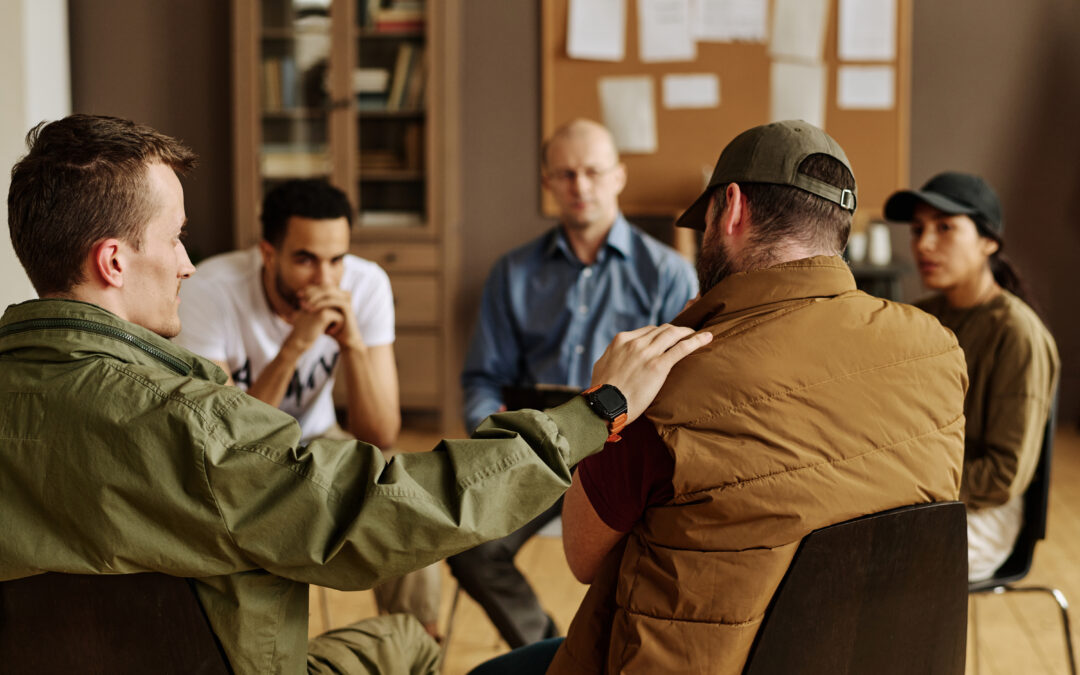Anger. Withdrawal. Taking too many risks. Alcohol or drug abuse. Flashbacks.
After years of war, Veterans can find themselves dealing with stress, anxiety, or PTSD — and their families struggle to find ways to help them cope with the symptoms and stress that comes with frequent deployments and constant combat action.
You can help loved ones processing the trauma of war and deal with survivors’ guilt, pain from injuries, or reminders of missile attacks, IEDs, or other horrors of war.
Here’s what to look for if you think your loved one has PTSD:
- Flashbacks and nightmares: Frequent distressing memories or nightmares related to traumatic experiences are signs of PTSD.
- Avoidance and emotional numbing: Individuals with PTSD may avoid reminders of their trauma and may become emotionally numb or distant.
- Irritability and hyperarousal: Watch for signs of heightened irritability, angry outbursts, or being easily startled.
- Social withdrawal: If the Veteran in your life begins to withdraw from social activities, hobbies, or friends they once enjoyed, it could be linked to PTSD.
- Substance abuse and alcoholism: Some people with PTSD turn to drugs or alcohol as a coping mechanism and to self-medicate. Changes in drinking habits or drug use may be indicative.
- Service-related guilt: Many Veterans struggle with guilt, especially survivors’ guilt or guilt related to actions taken during their service. This guilt can be overwhelming and can lead to thoughts of self-harm.
Here’s how to help (and help yourself):
- Educate yourself: Learn about PTSD to better understand the Veteran’s experiences and emotions. Knowledge can foster empathy and patience.
- Encourage professional help: PTSD often requires professional treatment, such as therapy or medication. Encourage them to ask for help and offer to go with them to appointments. You can also let them know about the Veterans Crisis Line at 988 or text 838255 to talk with a trained counselor. If there’s immediate danger of suicide, call 911 right away.
- Active listening: Create a safe space for your Veteran to talk about their feelings and experiences. Sometimes, just listening without judgment can make a significant difference.
- Try AAA: ask, advise, ask. Ask the person if it is OK to offer some advice. If they agree, give the advice. Then, ask if the advice was helpful.
- Ask open-ended questions that encourage a conversation. Don’t be judgmental and don’t try to advise without asking first. Sometimes, people just want to talk.
- Self-Care: Caring for someone with PTSD can be emotionally draining. Prioritize your own mental and physical health. Seek support from friends, family, or support groups if necessary. Try yoga, meditation, or exercise.
- Patience: Recovery from PTSD takes time. Be patient with them — and with yourself — as you navigate this journey together.
Tips for the Veterans:
- Change your lifestyle. Exercise, healthy eating, and volunteering can help. Avoid drugs and alcohol. Spend more time surrounded by the people who love you.
- Practice mindfulness. Concentrate on the present. Try simple breathing exercises or focusing on a single thing — a smell or taste —and focus on it intensely.
- Try optimism. Find the good stuff in life, the things that create joy or provide a sense of peace. List the good things that happened in the last 24 hours – no matter how small.
- Find a peer group. Finding other people who have similar experiences can take away the stigma of talking about what Veterans have experienced. It helps work through painful and intense emotions associated with loss and trauma.
- Get a dog. Many Veterans who struggle with PTSD have emotional support animals that help them feel more comfortable in situations that could cause them stress.
- Make a plan. Decisions are more difficult when you are in crisis. Create a plan to keep yourself safe. Find safe areas away from weapons, either at home or somewhere else. Include a list of phone numbers to call in an emergency.

